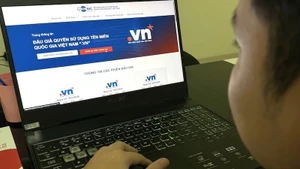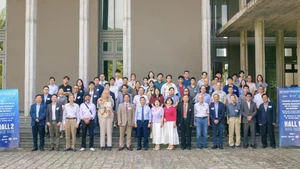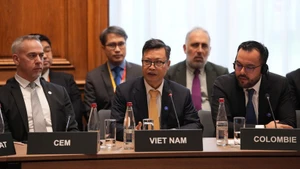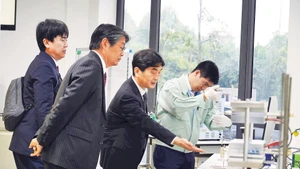Therefore, it is essential to clarify definitions, ensure transparency in post-assessment processes, and protect genuine researchers to make the law effective in practice.
Clarifying types of risk
The provision on "risk acceptance" in the Draft Law on Science, Technology, and Innovation has been well received. This policy is expected to mark a significant step forward, establishing a legal corridor that promotes a spirit of creativity and experimentation, helping to remove longstanding bottlenecks in scientific research.
This provision builds upon and supplements Article 4 of Resolution No. 193/2025/QH15 of the National Assembly (NA) on piloting special mechanisms and policies in science, technology, innovation, and digital transformation. In reality, many scientists still choose "safe" and "guaranteed" research paths out of fear that failure could result in personal accountability, damaging their reputation and career. Without a legal framework to protect them, the spirit of innovation and daring may be stifled at the conceptual stage.
Experts note that risk is inevitable in science. Even with proper procedures, sufficient resources, and appropriate methodology, failure can still occur. That is the price of innovation.
Chairwoman of the National Assembly (NA)'s Committee for Deputy Affairs Nguyen Thanh Hai once stated at a meeting of the NA Standing Committee: “Science involves trial and error. Out of 100 studies, perhaps only one is successful, but the 99 failures lay the groundwork—others will know not to follow those paths.”
To make “risk acceptance” a true driver of breakthrough development in science, technology, and innovation, many deputies of the NA and the NA Standing Committee recommend that the draft law must clearly define the boundary between "acceptable risk" and "legal violations".
Responding to the feedback from NA deputies, the draft law has added provisions on different types of risks and risk acceptance in scientific, technological, and innovative activities. It also authorises the government to define specific criteria for identifying risk, procedures for evaluation, and mechanisms to protect researchers and task managers.
Assoc. Prof. Dr. Nguyen Van Khoi, a Meritorious Teacher from National Economics University stressed the importance of differentiating between risks arising from objective factors or constraints in conditions and knowledge, and violations of law, which are inherently subjective and often driven by personal gain.
He noted that many research risks stem from objective factors for scientists but may result from subjective issues on the part of those commissioning or supervising the research. Thus, accountability should be based on cause, consequence, and intent, avoiding the conflation of honest failure with dishonest conduct.
Dr. Khoi cited a case where his research team was developing a special policy proposal for two areas in a province. During the process of gathering feedback from central ministries, the research had to be halted due to the province's suspension of investment—posing risks not only to the research team but also to the locality itself.
Transparent post-check mechanisms needed
From another perspective, Professor and Doctor of Science Nguyen Dinh Duc from Viet Nam National University, Ha Noi cautioned that without clearly defining "risk" and "risk acceptance" in the law itself, implementation would be difficult: “The law stands above all, and if it does not pave the way, lower-level decrees will struggle.” He stressed that despite the complexity of the issue, the drafting body must make an effort to clarify these definitions rather than shifting the entire burden to subordinate regulations.
Nguyen Phuong Tuan, Vice Chairman of the NA Committee on Science, Technology and Environment, explained that the current draft law provides a general framework because including detailed provisions in the law would make it hard to adapt to the rapid pace of change in science and technology.
Amending a law takes significant time—sometimes years. Therefore, the law outlines principles, while details will be specified in sub-law documents issued by the government to ensure flexibility in revisions and additions.
The key question is how the government decrees should be structured and oriented to ensure the law is effectively implemented.
Representative Tran Khanh Thu (from Thai Binh NA delegation) argued that scientific research and innovation may fail within certain limits, which is consistent with the exploratory and experimental nature of these fields. Objective and honest risks that are properly reported according to procedures should not be deemed violations. This distinction forms the basis for separating “honest failure” from “fraudulent or deceptive conduct”.
NA deputy Khanh Thu proposed building a post-check legal framework with three categories including completed research with clear application value; unsuccessful but honest work that can be inherited through publication of risks or failed results; cases showing signs of misconduct - such as falsification or dishonesty, or where results cannot be verified - should be subject to accountability.
When the research process is made public, subject to peer review and independent evaluation, even failure becomes a step forward in knowledge and should be protected. In this regard, Nguyen Phuong Tuan proposed that risk evaluation be conducted by an independent acceptance committee with legal authority. The committee should include multiple members not affiliated with the project’s host institution to ensure objectivity.
















